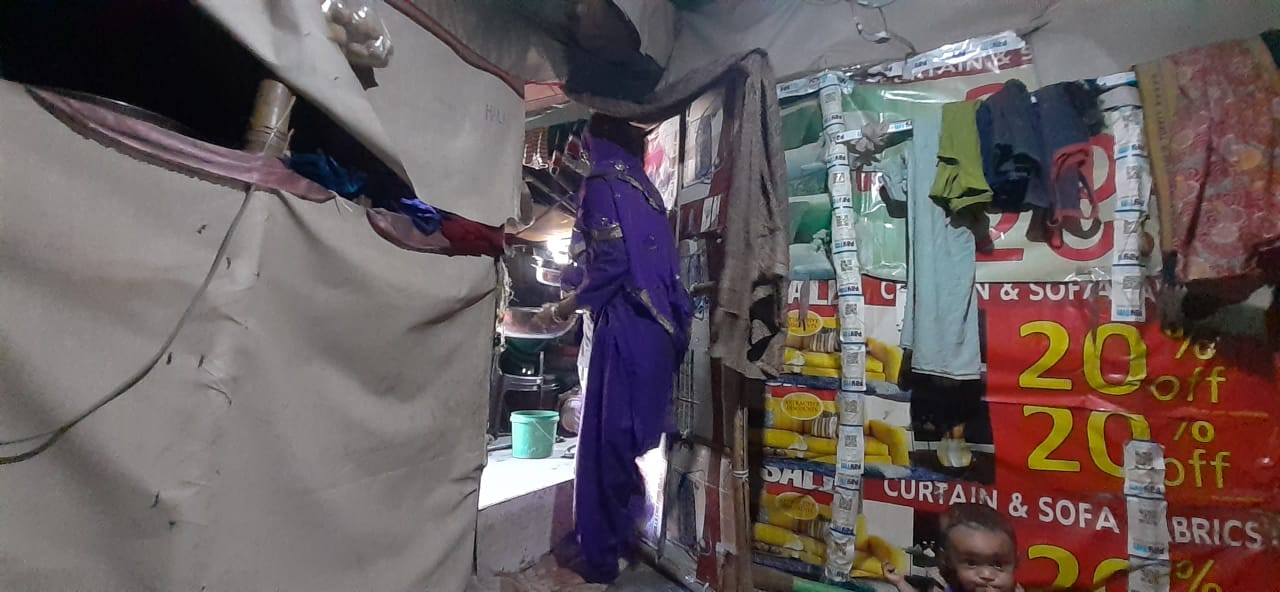Saputara, is a 19 year old woman currently living in the Kalindi Kunj camp in New Delhi, India. I spoke with her on the telephone via her husband Halal, a 23 year old Rohingya man whom she met at the camp. They have two children together. The only word we could directly exchange,sans translation,was Namaste, a common greeting in Hindi language.

She was just 10 when she left her village, Bondu near Mangdau, Northern Rakhine, for good. She fondly remembers the spot near the pond where she would play, often with friends. She lived in a crowded household of eight members including herself. When a house close to hers had been attacked,the family knew they had to leave. . Several families including hers ran towards ‘Moora,’a big hill. They left barely with any possessions, merely the clothes on their back and a couple bottles of water to satisfy the entire family. They hid behind the hill for a while, watching their back and then eventually decided to take the boat to Bangladesh.

I asked her if she had ever been on a boat.She chuckled sheepishly told me that was the first moment she felt like she might die. Although the sea was close to her village, she had never been on a boat so massive. She and her family were dropped somewhere along the Bangladeshi coast before walking towards their first camp.
They reached Cox Bazar and settled in Kutupalong Refugee Camp. They met others from their community there. Saputara and other children played at the camp. She told me about her dreams of studying and making something of herself. Saputara saw other children going to school and thought that one day she would too. Things were deteriorating at the camp; they lived in make-shift tents and had to stand in long lines for drinking water or to go to the toilet. There weren’t many employment opportunities for her ageing father.

The family therefore decided to migrate to India in hopes of getting a job and securing a better and stable life. They traveled in a truck, walked to the border and reached Kolkata in the neighboring Indian state of West Bengal. From Kolkata, they took a train to New Delhi where she is currently settled.
Saputara’s loss is fresh; it isn’t a distant memory. In addition to her home, she lost two of her siblings on the journey.
I asked Saputara if she understood why they had to leave their home.
“They were killing us because we are Muslims,” she said, unable to elaborate on who ‘they’ are. “[India] is not my country. If I go back, they will kill me.” The only thing that matters, she says, is that she now feels safe.
